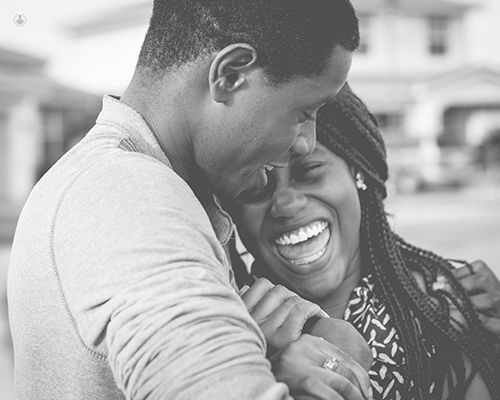Understanding anxiety: What are the symptoms?
Escrito por:In his latest online article, renowned senior consultant psychiatrist Dr Tim Ojo explains anxiety in expert detail. He lists the main symptoms of anxiety, and teaches us how to manage anxiety in your daily life.

What are the main symptoms of anxiety?
The main symptoms of anxiety include worry, sweating, palpitations, and various effects on the body's systems. You may experience gastrointestinal symptoms, such as difficulty swallowing, diarrhoea, and tightness in your stomach. Additionally, you could have muscle aches, headaches, dizziness, sleep disturbances, loss of appetite, and various other symptoms. In general, excessive worry and sweaty palms are common signs, often accompanied by a faster heart rate.
What are some ways to calm myself if I feel very anxious?
One of the best ways to calm yourself is by managing your breathing. Centring yourself through slow, deep breaths can alleviate anxiety. An easy technique involves finding a quiet spot and taking three deep inhalations, filling your lungs with air, followed by three slow exhalations through your mouth. This simple practice can significantly reduce anxiety, making it the first step to take when you're feeling anxious.
When is medication recommended to treat anxiety?
It's important to remember that anxiety is a normal part of the human condition. However, when anxiety starts affecting your daily functioning at work, at home, or during leisure activities, it becomes a problem. Mild anxiety can often be managed with strategies like exercise, improved sleep, and regular eating habits. But when anxiety becomes debilitating, seeking treatment is crucial. Initially, treatment may involve short-term medications like benzodiazepines or sleeping pills if your anxiety is related to life stressors.
For more serious cases, antidepressants from the SSRI class are effective for anxiety. In specific cases like heart-related anxiety, beta blockers like propranolol may be recommended, especially if you don't have asthma. In general, if your anxiety is mild, focusing on exercise, sleep, and dietary improvements may be sufficient.
Can diet have an effect on anxiety?
Yes, diet can indeed affect anxiety. When you're anxious, you may feel nauseous and have difficulty eating. It's essential to make an effort to eat regularly, even in small quantities, when you're anxious. Consuming foods that agree with you is also important, as foods that don't can exacerbate gastrointestinal symptoms like diarrhoea or stomach upset, indirectly worsening anxiety.
Can a lack of social interaction or living alone cause anxiety?
Research suggests that humans are inherently social beings, and we benefit most from positive, supportive relationships. Being alone or isolated is a risk factor for developing anxiety and depression. Seeking out affirming relationships can significantly help reduce anxiety because having people to talk to and provide reassurance is essential. In essence, being alone is not conducive to managing anxiety effectively.
If you would like to book a consultation with Dr Tim Ojo you can do so today via his Top Doctors profile.


